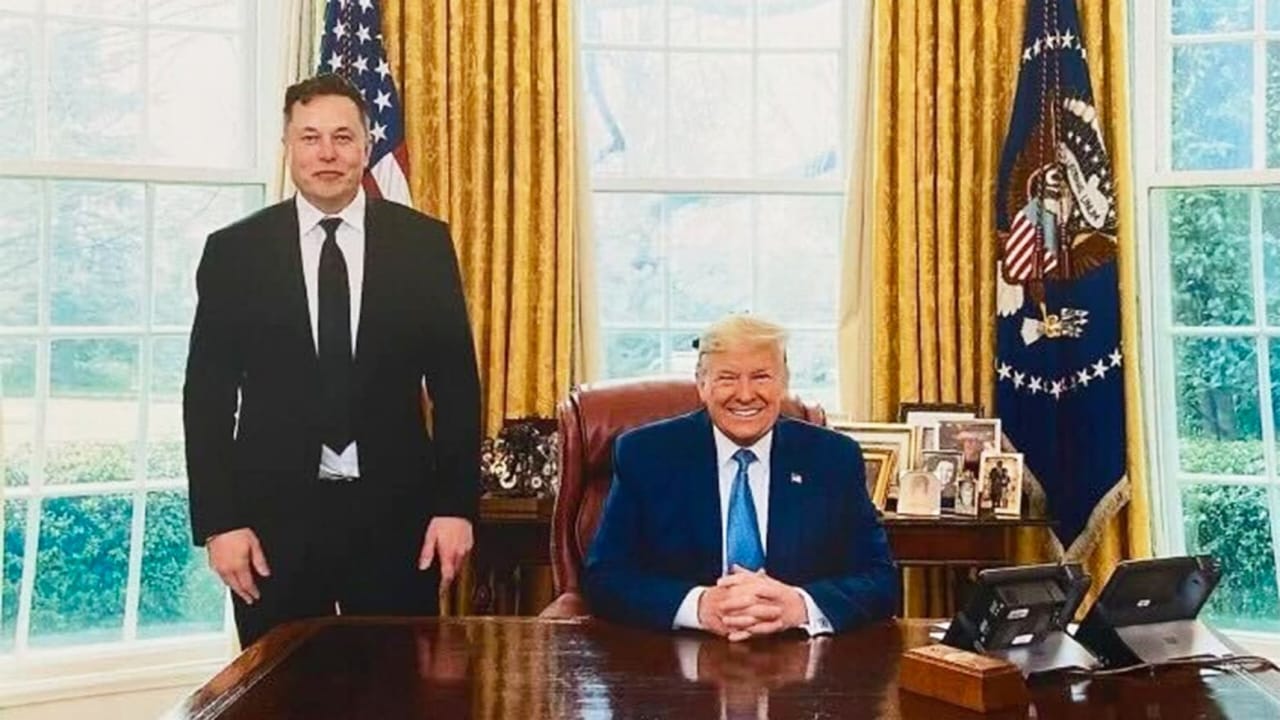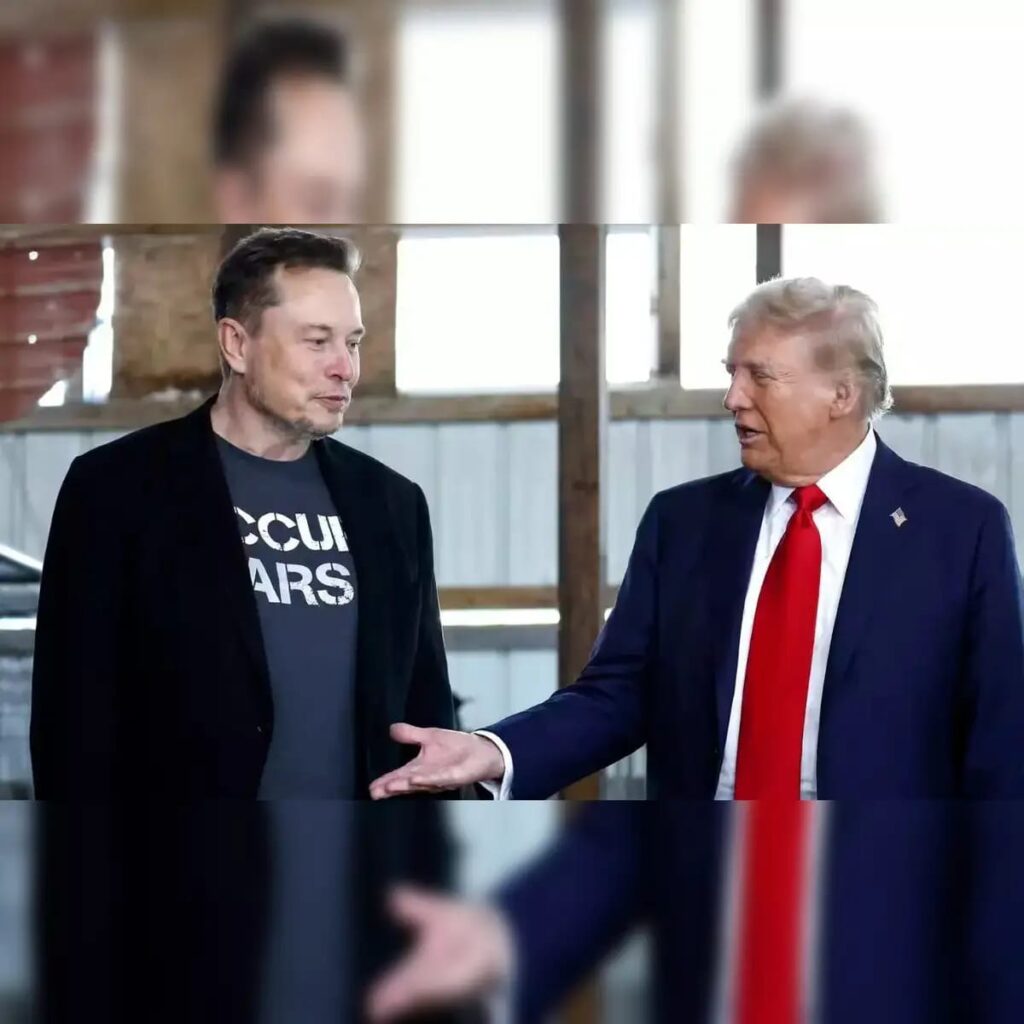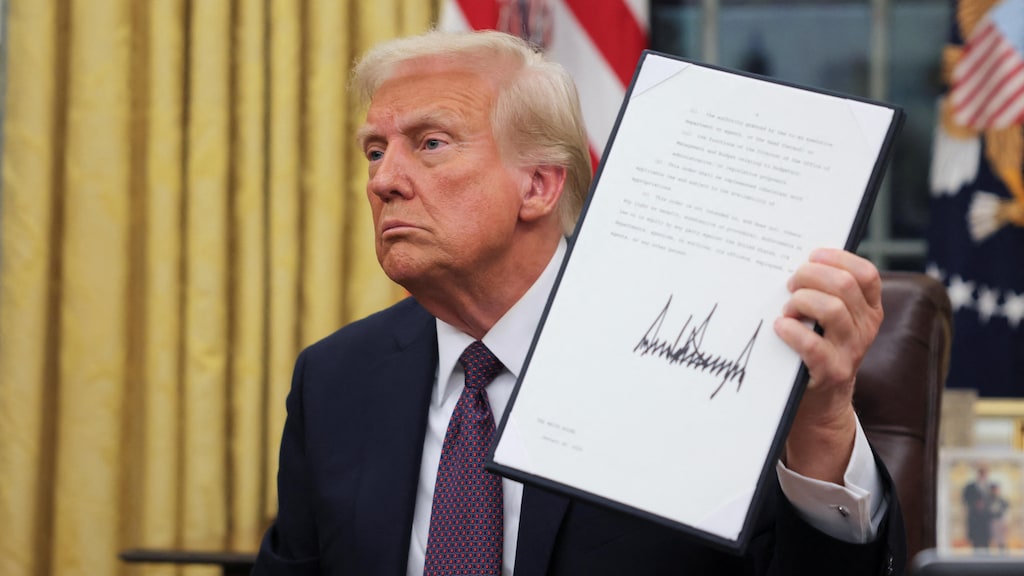
Billionaire tech mogul Elon Musk, known for his outspoken views, has officially severed ties with Donald Trump’s administration. His resignation comes after a public spat over Trump’s controversial tax bill, which Musk has called fiscally irresponsible. The clash highlights the fragile relationship between Silicon Valley and Washington — a dynamic where money, influence and ideology often clash.
For years, Musk had played an ambiguous role in Trump’s orbit, occasionally advising on infrastructure and space policy. But his recent criticism of the administration’s spending priorities has marked a breaking point. Trump, who has never backed down, dismissed Musk’s resignation with a characteristically blunt response: “You’re going to have to get a lot of votes.”
All the points in this post
Elon Musk’s resignation: “My time is up”
Musk announced his resignation in a cryptic post on X, saying, “My time is up. Move on.” Without explicitly naming Trump, inside sources confirmed his resignation from his position as an adviser to the administration.
It wasn’t entirely unexpected. Musk had been increasingly vocal about his disagreements with Trump’s policies, particularly the $2 trillion “Big Beautiful Bill” — a tax package critics say disproportionately benefits corporations. Despite being a billionaire, Musk called it “short-sighted” and warned of a growing deficit.
A difficult partnership
Musk joined Trump’s business council in 2016-2020, focusing on manufacturing and space exploration. Tensions rose as he criticised Trump’s COVID-19 response and environmental rollbacks in 2021-2024. The 2024 tax bill became the final straw.
The tax bill that set them apart
Trump’s tax proposal included sweeping corporate cuts and infrastructure spending as a boon to the economy. But Musk argued that it prioritised political gain over financial stability.
“You can’t spend your way to prosperity,” Musk tweeted, drawing a storm of criticism. Trump’s comeback? “Everyone loves this bill – except those who don’t need the tax cuts.”
The main points of contention were corporate tax cuts, which Musk believed would increase income inequality. Deficit spending, which the bill added $1.2 trillion to the national debt. Political views, which Musk accused Trump of “buying votes” ahead of the 2024 election.

Trump’s response: “Gotta get a lot of votes”
Never shying away from a controversy, Trump downplayed Musk’s resignation in a Truth Social post, saying, “Elon is a smart guy, but he doesn’t understand politics. If you want to win, you have to spend. Easy.” The comment underscored the Trump administration’s transactional approach and willingness to alienate allies when they challenge his agenda.
Tech world in turmoil
Progressive tech leaders in Silicon Valley’s divisiveness praised Musk, while conservatives called him a “hypocrite.” In response, Tesla stock briefly fell, then steadied.
Tech Titans in Politics: A Complex Legacy
Musk’s resignation reignites debate about billionaire influence in government. Unlike Peter Thiel, a staunch Trump ally, Musk has oscillated between cooperation and criticism.
In a historical context, the Obama era saw tech leaders embrace renewable energy policies. Now, in the Trump era, relations have been strained over immigration and climate change. Will Musk fund third-party candidates in 2024 and beyond?
What’s next for Musk and Trump?
For Musk, there’s a focus on SpaceX’s Mars mission and Tesla’s AI projects. He’s likely to have a liberal leaning, as he hints at a possible political backlash. For Trump, there’s a doubling down on the popular economic message and a search for new tech allies, with rumours hinting at a meeting with Mark Cuban.
The Impact of Tech Leaders in Government
Musk’s story is not unique. Over the years, numerous tech executives, from Bill Gates to Eric Schmidt, have served as advisors to U.S. presidents. Their insights are often sought after because of their expertise in emerging technologies, data science, and global market trends.
However, the Musk-Trump dynamic highlights the inherent challenges of this relationship. Politicians operate on election cycles, while tech leaders think in decades. Policies designed for immediate political gain can clash with long-term innovation strategies. Moreover, the inherently collaborative nature of tech culture sometimes clashes with the hierarchical, win-at-all-costs mentality prevalent in politics.
This tension raises an important question: Can the worlds of Silicon Valley and Washington, D.C., ever truly coexist? Some argue that the answer is yes—but only if both sides are willing to compromise and communicate effectively. Others believe that fundamental differences in values and time frames make sustainable collaboration impossible. Regardless of where one stands on the issues, Musk’s experience highlights the importance of transparency, mutual respect, and shared vision when bringing business leaders into the political arena.
the end
The Musk-Trump split isn’t just a rumour — it’s a case study in how ideals clash with pragmatism. Musk’s departure suggests that even the wealthy can’t always sway Washington. Meanwhile, Trump’s “vote on virtue” approach may strengthen his base but risks alienating innovators
One thing has become clear: in the high-stakes game of politics and power, there are no permanent allies — only permanent interests. Don’t forget to leave a nice comment and comment. See you tomorrow with a new story. Stay well, everyone.






